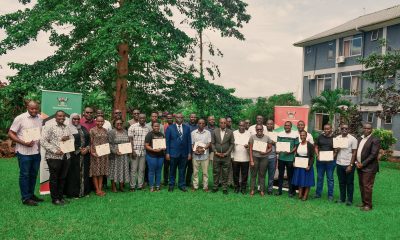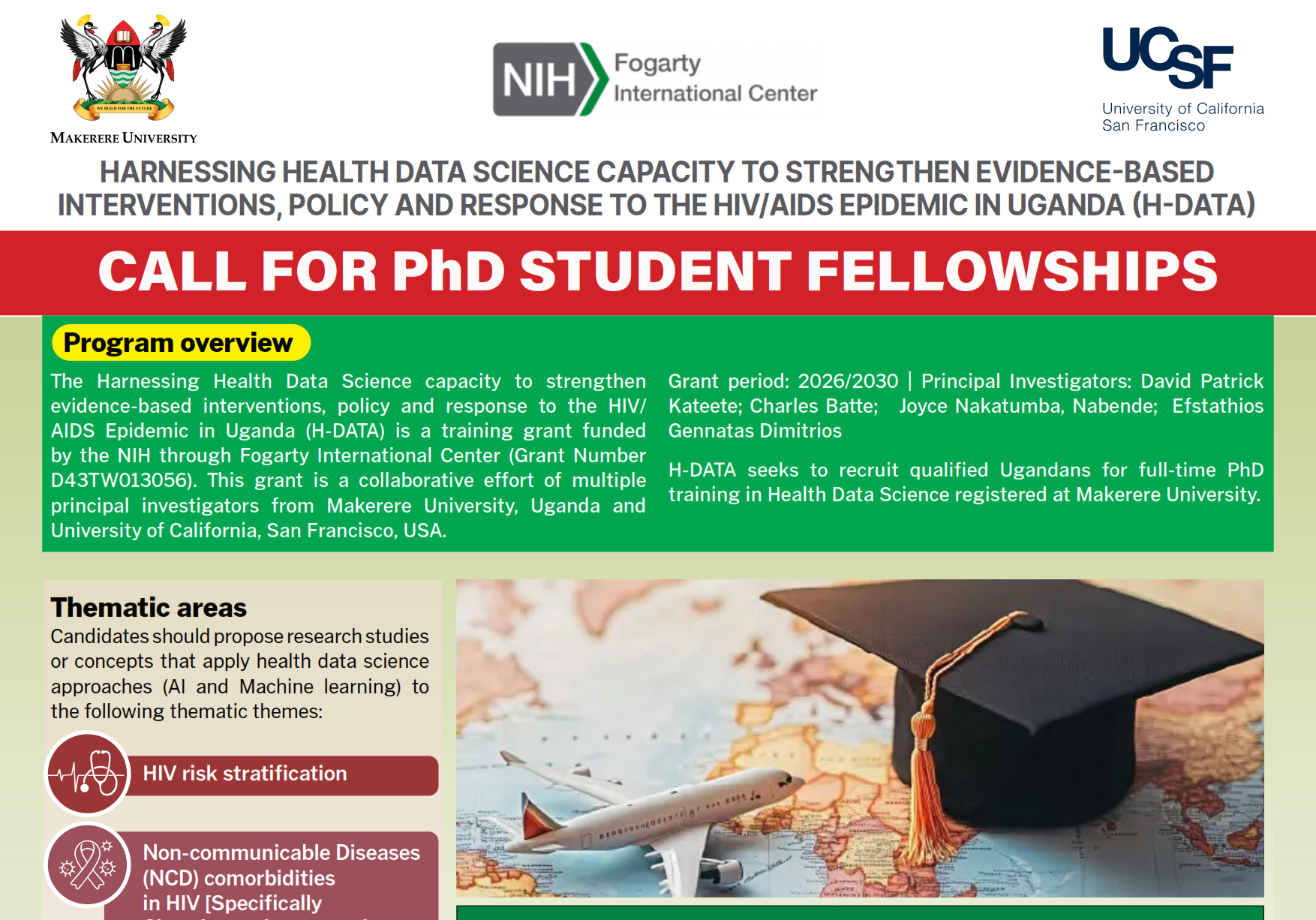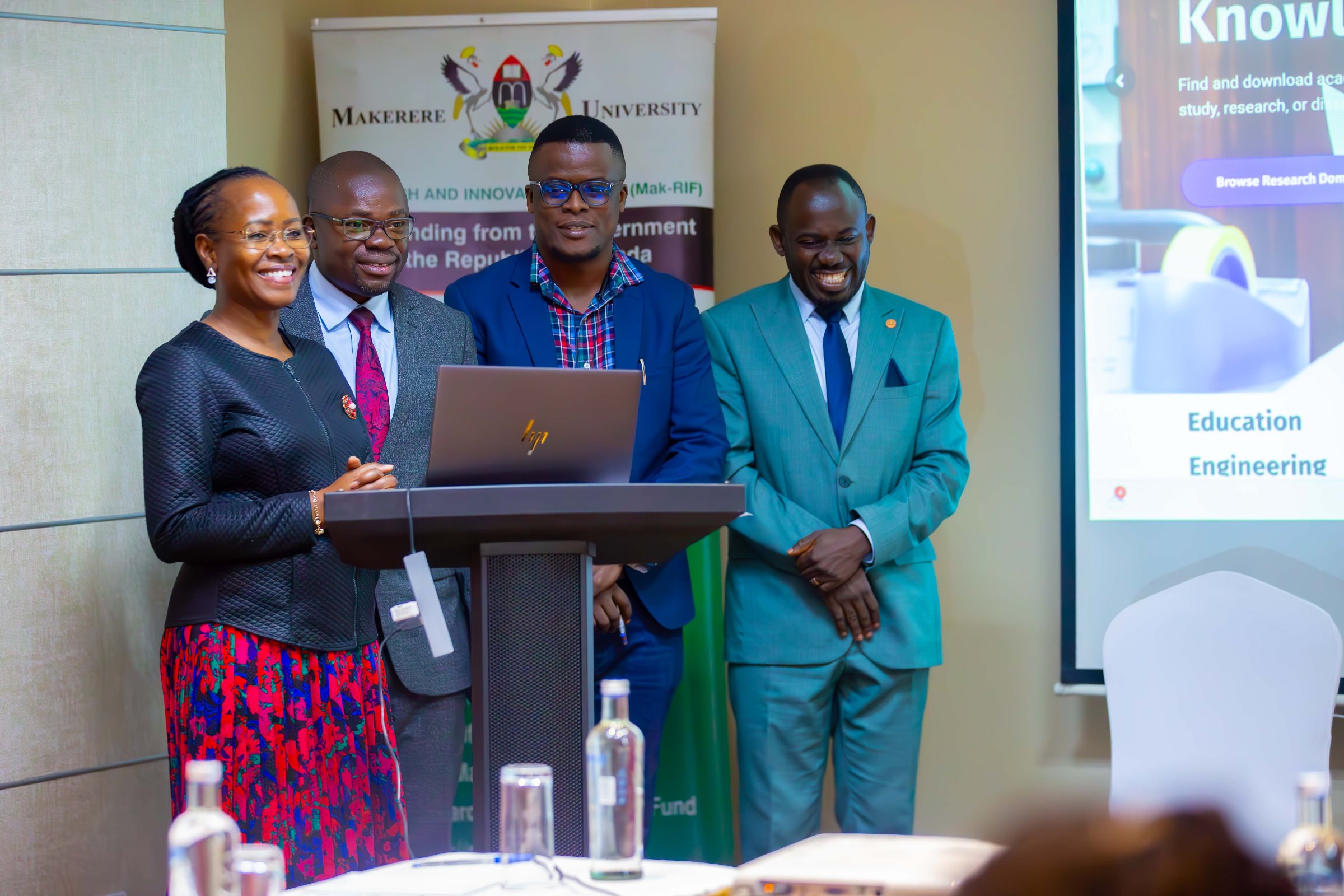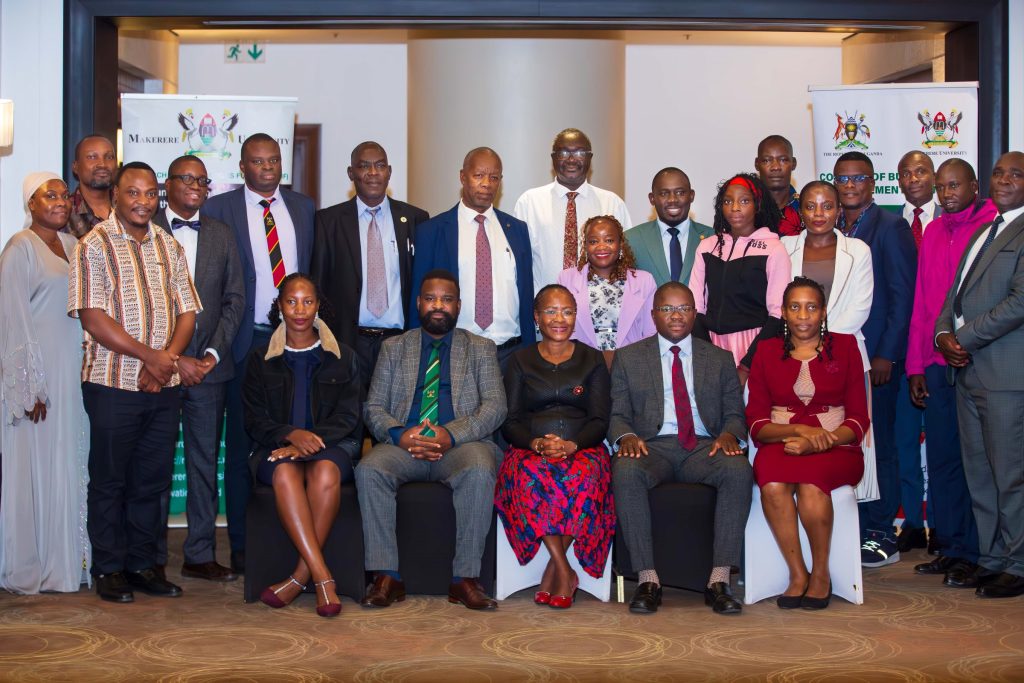By Davidson Ndyabahika
Makerere University School of Public Health’s (MakSPH) Dr. David Musoke has started his term as the new Chair of the Grants and Research Capacity Building Committee.
Dr. Musoke, a Lecturer in the Department of Disease Control and Environmental Health at MakSPH, replaced Dr. David Serwadda, an infectious disease epidemiologist and Professor at the School who had served in this capacity for 13 years, at the committee’s handover meeting held on 23rd March 2021.
MakSPH maintains its rank as an academic, research leader in public health in the region. This has been enabled by a strong and dedicated team of professionals that support the research and training. The School has also been leading in this area of grants management in the entire University, thanks to the credible leadership of the School.
A brief about the Grants Committee
Between 2003 and 2009, Professor Serwadda was Director of the then Makerere Institute of Public Health. He served in that position until 2007 when he was promoted to the position of Dean, Makerere University School of Public Health, following the elevation of the Institute to a constituent School of Makerere University College of Health Sciences. It is during this period, that he started a grants committee.
“During that time, the committee did not perform as expected because there was a lot of resistance. Nevertheless, in 2008 the grants committee kicked off,” Professor Serwadda recalls.
In the past four years, the committee has evolved into what we now know as the Grants and Research Capacity Building Committee.
One of its key achievements under Prof. Serwadda’s leadership has been a generation of strong policies to guide the grants management at the School, that have since been approved by the School Board. The documents range from the Grants Procedure Manual, Conflict of Interest Policy to Management of Grants external to MakSPH.
“These documents we have developed are very important for purposes of management and procedural management of the grants at the School. Having these documents is a very important achievement as Makerere University Central Management does not have some of them very well outlined for the whole University,” Professor Serwadda.
He adds that; “The School of Public Health has been leading in this area and some of the colleges are learning from what we have been able to do to manage their grants.”
Additionally, the grants committee has been involved in the capacity strengthening by the grant’s secretariat. “I am extremely grateful to the grants secretariat and initiatives they have made in securing grants for purposes of either training researchers among others. This is something that is commendable,” Professor Serwadda.
Professor Serwadda also appealed to the new committee to embark on the Monitoring and Evaluation of the performance of grants, which had initially been thought to be the function of the Heads of Department. He added that the committee ought to continuously sensitize and enforce the monitoring and evaluation of projects.
“The other issue is the individual conduct of the PIs on these grants. There is a need to follow well-laid-out procedures for procurement, as well as conflict of interest. The conduct of the PI is extremely important in setting a tone on how the whole grant is managed,” said Professor Serwadda.
Other Areas of Improvement
Professor Serwadda highlighted that the Grants committee needs to regularly sensitize staff about the grants policies that exist in the School.
The in-coming Grants committee chairperson Dr. David Musoke said thanked the School management for entrusting him with the leadership of the committee.
“This confidence in me by the management of the School will be a driving force to work with the new team to ensure that we build on what has been achieved by the committee and move its agenda forward,” Dr. Musoke.
“I wish in a special way to thank my predecessor Prof. David Serwadda who has been at the forefront of this committee for very many years and, we have seen what the committee has been able to achieve over the years. This gives us an opportunity as the in-coming committee to harness what has been achieved but also build on the successes and learn from the challenges for the benefit of the School. I believe we will carry on the great work done by the outgoing committee and we shall make the entire School faculty proud,” he added.
Dr. Musoke further highlighted that the committee will continue to support the use and adherence to the already existing policy guidelines moving forward to enable proper management of grants at the School.
Dr. Rhoda Wanyenze, Professor and Dean, MakSPH emphasized that the Grants and Research Capacity Building Committee is a very crucial committee of the School.
“The volume of work has grown. We have a lot of funds coming into the School. Last year, we had slightly over US$ 30M in grants coming into the School despite the fact that we were in the middle of the COVID-19 pandemic. One of the things I am excited about is that these funds are not being contributed by one large grant. It is being contributed to by multiple small grants,” Prof. Wanyenze said.
She added that at the time she took over the Office of the Dean, the School’s grants portfolio went down about 50% because three large grants ended simultaneously.
“At that time, we were coming down from over US$ 30M to almost half if we had not put in deliberately efforts to try and expand the pool of people bringing in grants, multiple small grants, deliberately expanding partnerships so that we can work with more people, and so we have more players and to me, that is more sustainable,” Professor Wanyenze explains.
In the last three years, MakSPH has had more than 20 new partners and several direct first-time grantees.
According to Prof. Wanyenze, the School aspires to have more visibility in terms of Ph.D. training for regional leadership as the first Public Health Institute in the region.
“We have expanded the number of regional grants that we are coordinating as a School. There are more coming. This has been a deliberate effort and we must continue since we now understand what it takes to have that presence in the region,” she noted.
The Dean also noted that the school will further ensure it improves on the management of partnerships and grants.
“It is one thing winning a grant but it’s another sustaining this grant. Being in harmony with your funder, partners and making sure that you can pull them to deliver quality products on time is crucial. That is a major issue and one of our biggest risks. We have been taught science and no one has taught us administration and therefore the issues that break us are quite often not the science but how we manage our grants, our people, the procurement, and many other things. We need to continue to learn so that we appreciate our policies put in place,” Dr. Wanyenze.
Through the PMA project, Jhpiego, an international, non-profit health organization affiliated with The Johns Hopkins University rated MakSPH highly during the 3rd Organizational Capacity Assessment.
Prof. Wanyenze also noted that; “We had initially scored about 50% in Human Resources in the previous assessment but now the last assessment put us at 100%. But we need to continue to learn and so we appreciate that excellent contribution, all those great policies, it’s a reason we score highly. It is very important for us to attract money and continue to have more funders come to us but we must tighten up the loopholes within the policies and be able to implement them.”
She commended Prof. Serwadda for the great leadership of the committee and for working with humility. “We really appreciate your work. You have done a great job and I really like that you have had a good end-game. I hope you will keep around so that you continue to support Dr. Musoke and his team so that we can continue to add to the good works that you started, but also reach out and support us in the office of the Dean and Management so that we can continue moving the school to the next level.”
“I don’t take smooth handovers for granted and I almost feel emotional when I see a smooth handover. This is a special moment for seeing that after 13 years, we have a smooth handover to the next generation of leaders for the School,” Dr. Wanyenze said.
She urged Dr. Musoke to ensure professionalism, ethics, integrity for research capacity building. She emphasized the need for good administration, good management.
“If there is anyone thing, I would like to leave behind myself in this School, is that we must learn to be good managers, we must learn and be good administrators because ultimately we cannot manage our projects that we are funded to implement if we are not good at those things,” She advanced.
To the grants team, the Deans said; “We are the leaders in terms of ensuring that we have a solid grants management, infrastructure, systems that can help us. The key is going to be on how we implement our policies. We must lead by example.”
She equally hailed the grants secretariat for being outstanding and excellent at the job they do.
What others say
Dr. Lynn Atuyambe, Associate Professor at MakSPH thanked the out-going Chair for dedicated service, keeping the committee together for 13 years.
“In an emotional special way, I really would like to thank the administration and specifically the Dean and Professor Serwadda for a job well done. No wonder, you are moving higher and higher at national and global levels. We really want to emulate you as much as possible for the inspiring leadership and all the achievements,” Dr. Atuyambe said.
Dr. Victoria Nankabirwa in equal measure hailed Prof. Serwadda’s exceptional leadership, citing that they had learned a lot from him and his leadership.
“We are very grateful to you Professor Serwadda for the foundation. We are also grateful to the secretariat. It is true that this actually one of the best secretariats that I have seen. We are thankful to the Dean who is very active in many things particularly with this committee, including the Small Grants.,” Dr. Nankabirwa.
Dr. David Guwatudde, a Professor and Co-chair of the incoming Grants and Research Capacity Building Committee thanked Professor Serwadda for the great leadership exhibited on the committee since 2008. Prof. Guwatudde, who also happens to have been a member of the Grants Committee since its inception, also hailed the Dean for advocating for handing over to the younger generation and making sure it happens.
Article originally published on MakSPH website
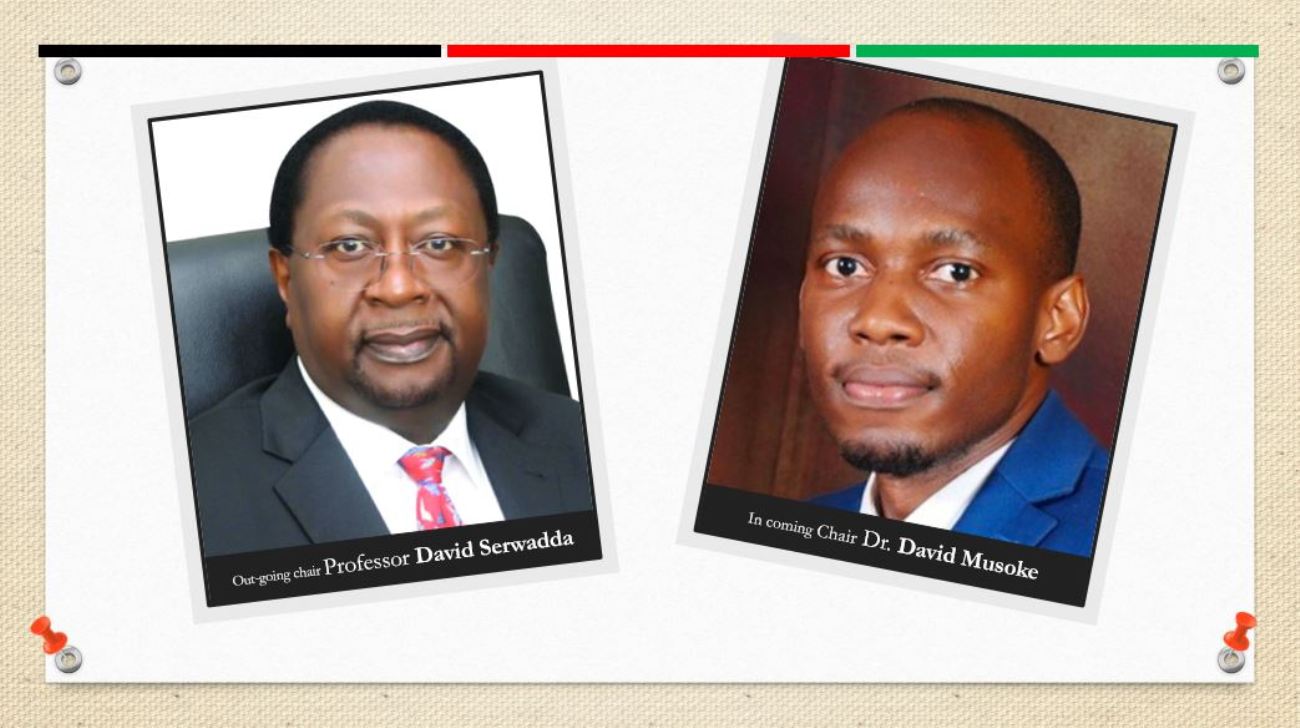

 Humanities & Social Sciences1 week ago
Humanities & Social Sciences1 week ago
 General1 week ago
General1 week ago
 Health2 weeks ago
Health2 weeks ago
 Agriculture & Environment2 weeks ago
Agriculture & Environment2 weeks ago
 General2 weeks ago
General2 weeks ago
